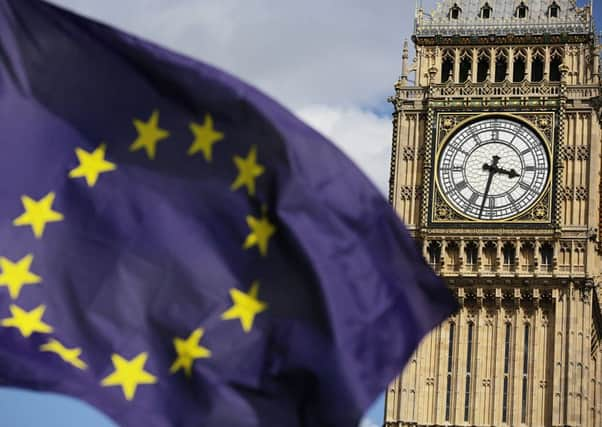Margaret Ritchie: Brexiteers know that a post-EU UK will not be as they said it would be


Already they can see that Britain outside of the EU will not be the land they have promised, and little can they rely on the patience of a public that only voted to Leave by the slimmest of majorities.
The absence of any solutions to how the worst damage of Brexit could be avoided, the Government and Eurosceptic press have instead decided their solution: scrutiny of Britain’s exit must be absolutely minimised, and opposition to the Government’s specific plans (or lack of plans) must be derided as disrespect for the ‘will of the people.’
Advertisement
Hide AdAdvertisement
Hide AdAs someone who has spent my whole political life fighting for civil rights and a fairer politics, I cannot accept this. The challenge to democracy does not lie in giving too much power to elected Constituencies representatives. The real challenge to democracy comes instead from a Government, which, on the grounds of protecting the UK’s negotiating position, seeks to give a Prime Minister with no personal mandate the exclusive right to interpret the meaning of a narrow referendum result.


The experience has illustrated why poorly planned and hastily implemented referendums have the potential to be so dangerous for public representation. A poorly orchestrated referendum elevates one question issue above all others and erases others.
No constituency or individual can ever be said to be truly single-issue. We all carry with us a range of beliefs, interests and priorities that cannot be easily reflected by a single question asked on a ballot paper on a single day. That is why we elect representatives who can use their judgement to consider all the views and needs of their constituency and then reflect these in their votes in Parliament. If a representative does a bad job, their constituents need only wait to the next election to summarily dismiss them.
We abandon this principle at great risk, empower not the people, but the government of the day. It is concerning to hear erstwhile promoters of Parliamentary scrutiny seek to muzzle debate and endorse through silence the shocking personal attacks some papers have levelled at the High Court Judges who ruled in favour of giving Parliament a voice.
Advertisement
Hide AdAdvertisement
Hide AdThat is why I do not believe elected representatives should feel bound to surrender deeply held principles and beliefs as a result of a referendum that divided opinion as evenly as is possible. Yet even if the Eurosceptic case for their mandate for hard Brexit was not already flawed, the fact remains that they are irrelevant to my vote and to the vote of the SDLP.


The SDLP remains the only Irish nationalist voice in Parliament, and as Ireland’s voice in Westminster, we take our instructions from the people of Northern Ireland alone. Both in my constituency of South Down and in Northern Ireland as a whole, voters backed Remain by a stronger margin than the people of Britain voted to Leave. So I have no time for anyone who tries to discredit our arguments on the basis that we are not respecting the will of our constituents.
Northern Ireland’s particular reliance on the EU means that, if Brexit cannot be stopped, its damage must be mitigated. The SDLP has consistently called for special arrangements to be established for Northern Ireland, which ideally would retain the full rights and benefits of EU membership throughout the island of Ireland. With the Government refusing even to begin discussions on how this could be achieved, or how Northern Ireland’s interests can be accommodated, the SDLP will consistently vote against Brexit and the triggering of Article 50.
Margaret Ritchie, SDLP MP, South Down